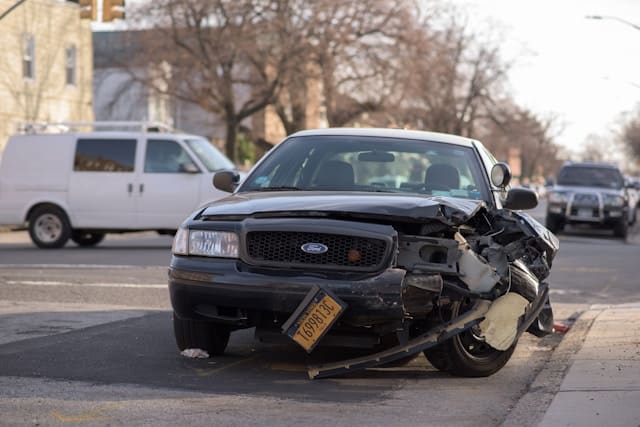A Fair Day’s Pay
Since 1881, the United States government has held that every worker is entitled to receive “a fair day’s wages for a fair day’s work.” This belief was made to be legally enforceable years later in the Fair Labor Standards Act (“FLSA”), and also in the New York Labor Law (“NYLL”). Yet, despite the laws making wage violations illegal, still to this day hundreds of employers a year are brought to court for partially – or completely – ignoring these mandates.
Unfortunately, it is not uncommon for employers to try to cut corners on wage and hour laws. Whether the employer is stealing tips, refusing to pay overtime wages, forcing workers to work off the clock, or taking unlawful deductions from workers’ pay, this conduct breaks the law, no matter how good-intentioned the employer was. And when these kinds of violations are happening to you at your place of employment, you need to consult with an experienced Employment Law attorney as soon as possible.
A Premier Wage & Hour Lawyer
The legal team at Shalom Law has handled a variety of Wage & Hour claims for many employees against many different employers across the state and around the nation. Some examples of the workers we have represented include:
- Employees who have not been paid the minimum wage
- Employees who have not been paid overtime.
- Employees who have not received their owed spread-of-hours pay.
- Tipped employees whose employers have wrongfully stolen or adjusted the employee’s tips.
- Employees who have been denied meal or rest breaks.
- Employees who have suffered unlawful deductions from their pay.
- Employees whose pay has been unlawfully withheld for weeks on end.
- Employees who have suffered retaliation from their employers for complaining about their pay.
- Employees who have been misclassified by their employers in an effort to avoid paying the legally mandated minimum or overtime wages.
If any of these above situations sound like something you are going through at your place of employment, contact Shalom Law today to discuss potentially bringing a Wage & Hour claim.
The Wage & Hour Laws
The FLSA and the NYLL protect workers and ensure that they are paid fair wages for the hours they work. To enforce such protections, these laws state that any employee who is underpaid by an employer is legally entitled to be compensated for the base sum and damages. A worker can be considered “underpaid” in a number of different situations, each of which give rise to a different claim. The four most common Wage & Hour violations that give rise to legally cognizable claims are:
- Failure to Pay Minimum Wage
- Failure to Pay Overtime Wage
- Paying Tipped Employees Improperly
- The Misclassification of Exempt Employees
- Unlawful Deductions
Minimum Wage Violations
Under current federal law, the average employee must be paid at least $7.25 per hour. However, under New York law, this rate is much higher. Since December 31, 2019, all employees in New York City must be paid at least $15.00 per hour. In Nassau, Suffolk and Westchester counties, it is $13.00 per hour. In the remainder of the state, it is $11.80 per hour. Moreover, these rates will only be increasing each year until the whole state’s minimum wage is $15.00.
What this means is the average New York City employer must be paying its workers at least $15.00 per hour, or else it is committing a violation. Regardless of whether the employer is committing this violation willfully or accidentally, paying less than the applicable minimum wage is wage theft, and it entitles the harmed employees to recover back pay, lost wages, and other damages
Overtime Wage Violations
Overtime regulations are held in the New York State Minimum Wage Orders and the Fair Labor Standards Act (FLSA). Generally, employers are required to pay an overtime rate for time and a half (1½ ) for every hour an employee worked over the base 40-hour workweek. Some forms of employment require the same payment for hours worked over 44 hours.
Navigating through the process can be challenging, as some forms of employment are exempt from the FLSA, and as a result, compensation is regulated by the state labor law. Having a lawyer review your claim and how the FLSA and New York Labor Law apply to you is immensely beneficial. Furthermore, there are jobs that are exempt from New York and FLSA law such as farm labor, government, executive, professional, administrative, as well as certain apprentices, volunteers, interns, and several others. Many jobs are paid salary or by freelance, while they are entitled to overtime. In order to calculate the hourly rate of pay, the total pay is divided by the number of hours worked. Similarly, if different rates were paid for differing aspects of the job, the varying rates are averaged out based on how many hours were worked. In such cases, overtime is considered on a week to week basis. And the failure to pay the overtime wage due is wage theft, just as with minimum wage.
Holidays, weekends, and night work do not qualify for overtime. Employees and employers can, however, negotiate overtime entitlements into an individual or collective employment contract. Overtime cannot be waived in such an agreement. Additionally, an agreement to pay overtime is upheld even when the employer states that overtime must be pre-approved in order to be paid out.
Regulation of overtime for specified employees is covered by both federal and state laws. Those not included under the minimum wage law, are not eligible for coverage under overtime laws. A number of jobs, however, that are excluded from the FLSA are eligible for overtime under the NYLL. There are instances when an employment contract stipulates a higher overtime payment that is required by state or federal law, but less than state or federal minimum is prohibited. In New York, the law dictates that once a violation of overtime federal or state laws have established, the employee may be able to receive unpaid wages as well as liquidated damages. Liquidated damages are in fact mandatory in New York unless the employer can prove that it acted sincerely. If an employee is not paid overtime, she may be eligible to recover liquidated damages in a claim.
Violations Regarding Tipped Employees
Tipped employees, such as servers, hosts, hotel staff, bussers, valet drivers, and luggage handlers extremely susceptible to unlawful wage practices because of the way the law allows them to be paid. Tipped employees’ pay comes from two sources: from their employers, usually in check form, and from their customers, usually in the form of cash or charged tips. This two-part pay system in New York requires the employer to pay these employees 2/3 of the applicable minimum wage, with the final 1/3, called the “tip credit” expected to come from tips from guests.
However, this split system is often abused by greedy employers. Some employers will try to make tipped workers only work for tips, with no hourly wage. Other employers may pay tipped workers only the hourly 2/3 wage, and then keep the tips for themselves. Additionally, employers may unlawfully share in tips that are supposed to be pooled amongst the bussers, or might unlawfully charge a serve for a table that walks out without paying their bill.
These violations constitute wage theft and tip theft, and could leave an employer liable for back pay, lost wages, compensatory damages, as well as potentially much more. To
The Misclassification of “Exempt” Employees
Most workers are entitled to minimum wage and overtime pay. However, some kinds of workers are legally deemed to be exempt from the protections of the FLSA and the NYLL. These exemptions are clearly and narrowly defined to include only certain professionals, administrators, and professionals, yet employers often wrongly try to cram their employees into one of these exemptions, or “misclassify” them, to get out of their legal obligations to pay minimum wage and overtime.
When an employer misclassifies a worker as exempt from minimum wage and overtime requirements and thus fails to pay the worker adequately, the employer again commits wage theft. This violation can also bring a lot of damages if you can prove you were indeed misclassified. However, the determination of whether you are indeed an exempt worker or if you are entitled to the legal wage protections depends heavily on the specific facts of your situation. Fortunately, the attorneys at Shalom Law are well-versed in the NYLL and FLSA exemptions and can help you determine if you are indeed an exempt worker or not.
Unlawful Deductions
The NYLL prohibits employers from deducting money unlawfully from your hard-earned pay. Deductions for things like federal and state taxes are lawful, as long as you have proper notice of the amounts being deducted, but if your employer tells you that he’s going to take a deduction from your pay for the taxes HE had to pay on something he had shipped to the store, that’s unlawful wage theft.
Essentially, you as an employee are not supposed to receive random deductions form your pay when your employer feels like it. Unlawful deductions from your pay include charges for things like lost, stolen, or damaged company property; loss of a potential client; business losses; register shortages; or overhead expenses. These kinds of charges are illegal and will make the employer liable for lost wages, compensatory damages, and maybe even more, depending on the circumstances. If you think you’ve noticed your employer taking unlawful deductions from your pay, you should speak to a successful Wage & Hour attorney at Shalom Law about your situation.
Don’t Let Your Boss Steal Your Money Again!
If you are dealing with a wage dispute arising from unpaid or lost wages, it is in your best interest to retain an experienced Employment Law attorney as soon as possible. The lawyers at Shalom Law are knowledgeable, professional, and very experienced in handling these kinds of delicate wage disputes between employers and employees.
Ensuring that your rights are protected and your best interests are served is our business at Shalom Law. Contact us today at (718) 971-9474.







